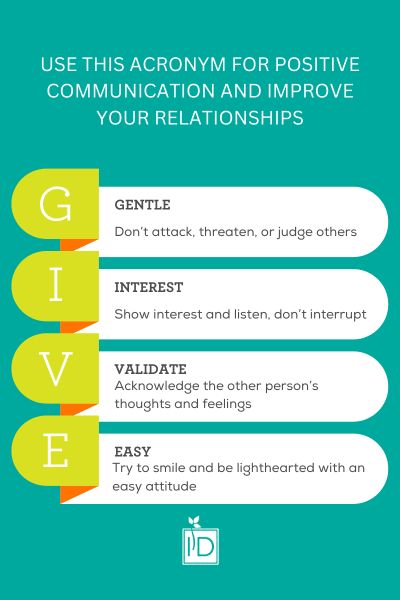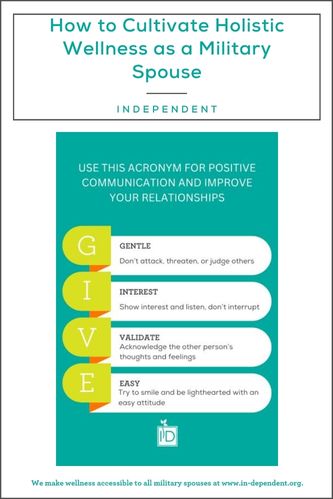Are you tired of feeling stressed, unfulfilled, and out of balance? If so, it might be time to embrace holistic wellness. Holistic wellness is generally defined as taking care of your mind, body, and soul together in order to achieve overall well-being. However, it isn’t a one-size-fits-all concept. It encompasses a multi-dimensional state that goes beyond the mere absence of illness. This requires attention to your whole self and a commitment to exploring what works best for you. If you’re ready to support your health transformation, keep reading to learn more about the power of holistic wellness.
HOLISTIC WELLNESS IS PROACTIVE
In my practice as a mental health advocate and educator, holistic wellness is one of the proactive steps I take in prevention and maintenance. Instead of waiting for problems to arise and/or conditions to deteriorate, it is important to establish a strong foundation, specifically in mental health, to experience personal growth in the present and prepare for a thriving future. One common misconception about mental wellness is that prioritizing it implies the presence of a mental illness. However, mental health exists as a spectrum and demands adjustments to care based on where you are within this continuum. This shift in perspective challenges the stigma by acknowledging our shared human experience.

Yet it is important for you to work with a professional who acknowledges that you are unique and require a personalized experience. This means addressing your underlying issues while catering to your distinct needs, circumstances, and aspirations. As a mental health advocate, I encourage you to recognize the intricate interplay of the various dimensions that compose your well-being. These dimensions span physical, intellectual, emotional, social, spiritual, financial, occupational, and environmental health. The goal is to consider each area as interconnected factors influencing collective aspects of your life.
SKILLS THAT SUPPORT YOUR WELLNESS
One of the distinguishing features of my holistic wellness philosophy is my dedication to evidence-based practices such as Dialectical Behavioral Therapy (DBT). This approach serves as a stepping stone towards creating mindful habits and sustainable, long-term routines that revitalize energy and reconnect the mind, body, and soul. DBT encompasses a range of skills that are essential for encouraging mental health within the context of holistic wellness.
Try using some of these skills when life feels especially stressful:
- Mindfulness:
Try the tips in this InDependent article: Five Simple Mindfulness Hacks for Military Spouses - Distress Tolerance:
Skills, such as distraction or self-soothing, that help you accept yourself and your current situation. - Interpersonal Effectiveness:
Helps you build healthy relationships by asserting yourself when necessary, expressing your needs, and saying “no.” - Thought/Emotional Regulation:
Skills that help you identify, name, and change your emotions.
You can try these on your own, but working with a trained counselor will provide you with more support.

In addition to these DBT skills, think about the importance of everyday activities in our lives. Activities such as finding comfort, engaging in play, and practicing practicality may seem modest, but they have a pivotal role in cultivating a profound sense of stability, balance, fulfillment, and overall well-being. These everyday activities also serve as reminders to make time for ourselves and our families, creating a lifestyle that supports meaningful actions.
In a world that is often overcome by consumerism, I encourage an alternative perspective: a shift away from the prevailing mentality of “buy more, do more, need more” and instead focusing on fostering awareness and understanding of having just enough to prosper. I believe in the power of necessary knowledge, tools, and resources to enhance your own advocacy. By understanding the factors that contribute to your wellness, you can make informed decisions and take active steps toward making changes that promote your well-being. This empowerment will foster a transformation that will help you and your family to grow through what you go through and support you on your personal journey toward becoming mindfully well.
TRY THESE TIPS TO TAKE CARE OF YOUR MIND, BODY, AND SOUL
Military spouses, practicing these skills can help you navigate the unique challenges that come with military life and build your resilience.
Here are some actionable steps you can take:
- Prioritize self-care:
Carve out time in your schedule to focus on what revitalizes you. - Practice mindfulness:
Take a few minutes each day to engage in deep breathing, sit with yourself in a quiet space, or simply be present in the moment. - Manage stressors:
Tune into your symptoms as indicators of stress, identify and reduce triggers, and develop coping strategies for your stress levels. - Determine your values:
Recognize how your values shift based on importance and priority. Ask yourself – How do your actions align with your values? - Build a support network:
Connect with others and surround yourself with those who fill your cup, finding strength in knowing you’re not alone. - Communicate:
Make an effort to communicate openly and honestly with your partner and family about your feelings, concerns, and needs. - Set boundaries:
Identify your limits and share them. It’s okay to say no and put yourself first. - Process your thoughts/emotions:
Acknowledge, accept, and move through negativity by encouraging positive self-talk. - Seek professional help if needed:
If you’re struggling with your mental health or finding it difficult to cope with the challenges of military life, don’t hesitate to seek professional help. Reach out to military support services, therapists, or groups who can provide guidance.

Remember, these skills take time and effort. Be patient with yourself and continue to refine what benefits your wellness and what does not. Do not forget to celebrate small victories along the way!

ABOUT SYKORA
Sykora Zabel-Karr is an active-duty military spouse with a passion for holistic wellness. She holds a bachelor’s degree in Exercise Science with a minor in Psychology, as well as a master’s degree in Clinical Mental Health Counseling. Sykora holds state licensure as a Licensed Professional Counselor. Her career path has been diverse, ranging from medical assisting to personal training, nutrition coaching, counseling, and mental health assessing specialist. Currently, she is the proud owner of a small advocacy and education business, Mindfully Well LLC, which partners with other military spouse owned businesses and community members to promote resiliency and a lasting impact on well-being.


